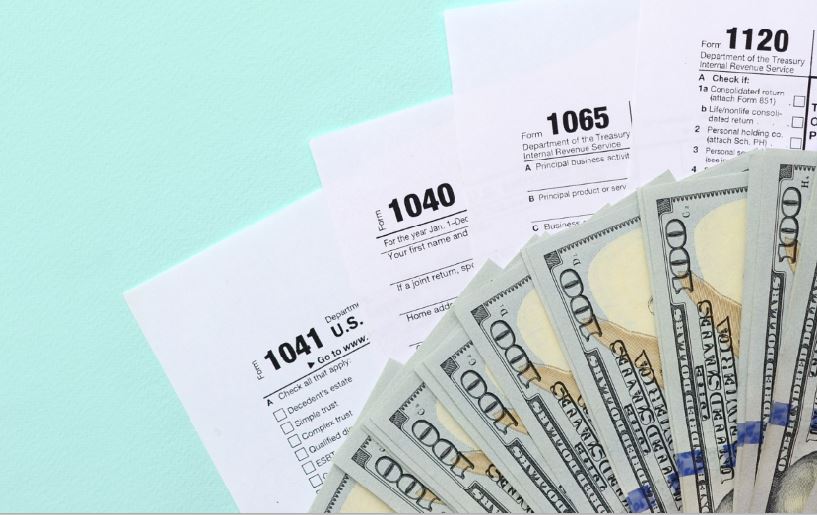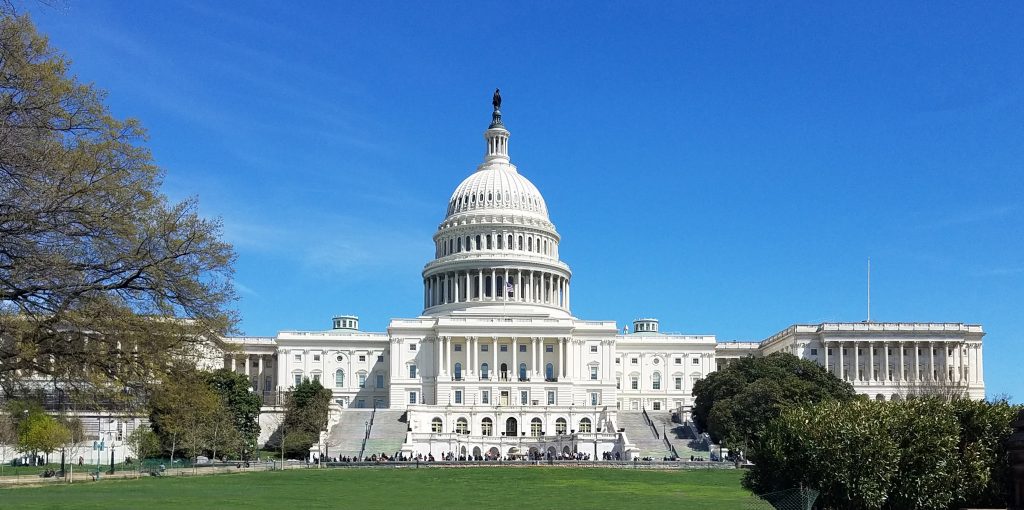
ITEP's Research Priorities
- 2025 tax debate
- Blog
- Cannabis Taxes
- Corporate Taxes
- Corporate Taxes
- Earned Income Tax Credit
- Education Tax Breaks
- Estate Tax
- Federal Policy
- Fines and Fees
- Georgia
- Immigration
- Income & Profits
- Income Taxes
- Inequality and the Economy
- ITEP Work in Action
- Local Income Taxes
- Local Policy
- Local Property Taxes
- Local Refundable Tax Credits
- Local Sales Taxes
- Maps
- Media Quotes
- News Releases
- OBBBA
- Other Revenues
- Personal Income Taxes
- Property & Wealth
- Property Taxes
- Property Taxes
- Publications
- Refundable Tax Credits
- Sales & Excise
- Sales, Gas and Excise Taxes
- Sales, Gas and Excise Taxes
- SALT Deduction
- Select Media Mentions
- Social Media
- Staff
- Staff Quotes
- State Corporate Taxes
- State Policy
- State Reports
- States
- Tax Analyses
- Tax Basics
- Tax Credits for Workers and Families
- Tax Credits for Workers and Families
- Tax Guide
- Tax Principles
- Tax Reform Options and Challenges
- Taxing Wealth and Income from Wealth
- Toolkits
- Trump Tax Policies
- Video
- Webinar
- Who Pays?
McConnell Balked at More Stimulus Aid to States, Betting Red States Wouldn’t Need It. Now?
December 4, 2020 • By Meg Wiehe

It is December 2020. Sen. McConnell has denied states—and their residents—relief for months. Congress must act now. Even if it does, it is unlikely to provide the robust aid needed to keep communities afloat and positioned for healthy recovery. Lawmakers across the country should be prepared to return to state capitals and city halls in the new year with plans to raise revenue not just to weather this crisis, but also to invest in long-term recovery.
These EITC Reforms Would Help Struggling Families Now and Address Systemic Challenges
December 4, 2020 • By Aidan Davis

The tepid economic recovery is leaving millions behind. The nation still has nearly 10 million jobs less than it did in February, according to the latest jobs report. The number of people living in or near poverty is rising. Twelve million workers are about to lose their unemployment insurance, roughly four in 10 people report experiencing food insecurity for the first time, and conditions are likely to deteriorate further in the weeks ahead as we brace for another deadly surge in COVID cases and new or tightened restrictions on business and personal activity.
COVID-19 Containment Is Key to Recovery—So Is Another Round of Stimulus
December 3, 2020 • By Aidan Davis

You can learn a lot about our leaders from how they act during times of crisis. This December, we are in our 10th month of the pandemic in the United States. With COVID cases climbing, deaths exceeding 270,000 and hospitalizations surpassing 100,000 for the first time, some states have halted reopening plans and imposed new restrictions. Containment of the virus is key to sustained economic recovery. As is another round of federal stimulus.
Lame-Duck Session No Time for Perfection, but a Bold Compromise on COVID Relief Is Needed
December 2, 2020 • By Amy Hanauer

Time for COVID relief is dwindling. A bipartisan group of lawmakers introduced a $908 billion COVID relief package on Tuesday, House Speaker Nancy Pelosi is floating a relief proposal and Sen. Mitch McConnell is circulating a wholly inadequate package. The best chance for legislation may be to include it in an omnibus appropriations bill, which Congress must pass this month. Following is a statement from Amy Hanauer, executive director of the Institute on Taxation and Economic Policy, regarding congressional negotiations over another round of economic relief.
After the Dust Has Settled: How Progressive Tax Policy Fared in the General Election
November 30, 2020 • By Marco Guzman

While the results of the 2020 presidential election are all but set in stone—and a sign of life for progressive policy—the results of state tax ballot initiatives are more of a mixed bag. However, the overall fight for tax equity and raising more revenue to invest in people and communities is trending in the right direction.

Better tax policies will help communities emerge from the current staggering fiscal crisis with tax structures that reduce inequality at a time when rich people are thriving and public services are under siege. Preserving public spending will boost the economy and improve lives–and cutting these essentials will not only hurt people but also deepen the downturn, a lesson we learned in the Great Recession’s slow recovery. Other states should take note.
The Center Square: Louisiana Tax Holiday May Save Shoppers $4.5 Million, Though Some Question the Value
November 19, 2020
“The conservative Tax Foundation and the progressive-leaning Institute on Taxation and Economic Policy don’t agree on much when it comes to taxes,” the Louisiana Budget Project countered in comments posted Thursday. “But both groups understand that ‘sales tax holidays’ – a favorite trope of politicians – are bad economic policy.” Sales tax holidays do not promote economic […]
Florida Policy Institute: 2021 Legislature Must Prioritize Revenue-Raising Solutions, Not Budget Cuts, To Bolster Post-Pandemic Recovery
November 18, 2020
Through smart investments, it is possible to make up billions of dollars without cuts. FPI proposes initiatives to close corporate loopholes such as “combined reporting”— already implemented by 28 states and D.C.— and the “throwback rule”— adopted by 22 states and D.C. — that would generate more than $500 million in general revenue. Read more […]
Biden’s Economic Policy Agenda Deserves Serious Debate, Not Obstruction
November 12, 2020 • By Jenice Robinson

Obstructing policies that improve economic well-being should not be on any party’s legislative agenda, especially when so many are barely keeping their heads above water.
Stateline: Budget Holes Loom After Voters Reject Some Tax Hikes
November 12, 2020
But Meg Wiehe, deputy executive director of the progressive Institute on Taxation and Economic Policy, said that is an oversimplification. She said wild speculation in opposition ads about what Illinois might do with the extra money, as well as ads that used the “nose under the tent” metaphor to imply that the income tax hike […]
CNBC: Here’s What’s Ahead for President-elect Biden’s Tax Plan
November 10, 2020
Another idea that might stand a chance in a split Congress could be to properly fund the IRS so it can pursue larger targets, rather than going through the contentious process of drafting and passing new tax legislation. “Even in a divided Congress, it might be politically easier to do that, compared to a more […]
Business Insider: Here’s how President-elect Joe Biden’s Corporate Tax Plan Will Impact Big Businesses
November 7, 2020
But even with an increased tax rate, big companies could still manage to pay $0 in federal taxes due to tax code loopholes and tax breaks. Under President Donald Trump, an analysis by NBC News and the nonprofit Center for Public Integrity found twice as many big companies — including Amazon, Netflix and Chevron — paid $0 […]
New York Times: Arizona Passes a Ballot Measure to Raise Teacher Pay by Taxing the Wealthy
November 6, 2020
Prop. 208 passed with 52 percent of voters supporting the measure, The Associated Press reported late Thursday. Under Arizona’s rules for ballot measures, the tax increase needed a simple majority to pass. “It’s a significant win, not just for Arizona, but I think it sent signals all across the country,” said Meg Wiehe, deputy executive […]
Axios: The Wealthy Rush to Shield Their Assets From Biden
November 2, 2020
Driving the news: Biden says he wants to raise taxes on people who earn more than $400,000 a year — which excludes most Americans — and lower the amounts people can give tax-free to their spouses and heirs. … “Just 1.9 percent of taxpayers would see a direct tax hike” if Biden’s tax proposals for individuals […]
Jacobin: Donald Trump Lied About Passing Pro-Worker Industrial Policy
November 2, 2020
The Trump tax plan also literally gives corporations more incentives to move production to other countries. According to the Institute on Taxation and Economic Policy, Trump’s plan “taxes the offshore profits of American corporations at a rate of zero percent or, sometimes, at half the rate imposed on domestic profits. […] This can also encourage […]
BBC: US Election 2020: Fact-checking Trump and Biden’s Final Week
October 31, 2020
In 2018, 91 of the top 500 companies in the US effectively paid no tax, according to a report by the Institute on Taxation and Economic Policy. Despite making almost $80bn in pre-tax income, some companies paid no taxes, as the US corporate tax code “lowers the bar for the amount of tax avoidance it […]
Florida Policy Institute: Florida Would See an Extra $577 Million in Sales Tax Revenue Under Amendment 2
October 30, 2020
As Florida Policy Institute and many others have demonstrated, gradually increasing the minimum wage to $15 per hour by 2026 would help lift households out of poverty and reduce pay inequities long experienced by women, people of color, and immigrants. Additionally, a new analysis by the Institute on Taxation and Economic Policy (ITEP) shows that Amendment 2 […]
Chicago Tribune: Commentary: How Illinois’ Small Businesses Will Benefit from a Graduated-rate Income Tax
October 30, 2020
Recent studies have shown that for decades, the current flat tax structure has only worsened income inequality throughout the state, stunting much-needed revenue and consumer spending. The Institute on Taxation and Economic Policy found that over the last 20 years, Black and Hispanic households in Illinois that make less than $250,000 per year paid $4 billion […]
Deadline: Joe Biden Slams Netflix & Amazon On Taxes, Again
October 30, 2020
The tax debate flared after President Donald Trump and the Republicans reworked the corporate tax code in 2016, slashing the corporate tax rate to 21%, from 35%. A widely cited analysis by Washington, D.C. think tank the Institute on Taxation and Economic Policy last year analyzed 2018 financial filings of the country’s largest publicly held companies and […]
An Underfunded IRS Allows Corporations to Get Away with Probably Illegal Tax Dodges
October 28, 2020 • By Matthew Gardner

A new look at S&P 500 annual financial reports for 2019 shows that five companies—Chevron, Dell, Eli Lilly, ExxonMobil and General Electric—kept $1 billion in tax breaks they admitted were probably illegal because tax authorities failed to come to a final determination before the statute of limitations ran out.
Trump Says Taxes Will Be Too High on the 2% Who Pay More Under Biden’s Plan
October 22, 2020 • By Steve Wamhoff

The Trump campaign has failed to convince the public that large numbers of Americans would face tax hikes under Democratic presidential nominee Joe Biden’s tax plan. The claim has been widely discredited. For example, ITEP found that the federal taxes that people pay directly would rise for just 1.9 percent of taxpayers in the U.S., and that number does not vary much by state. So, Fox News and other conservative voices are trying out a new argument: Biden’s tax plan would be too burdensome for that 1.9 percent.
Voters Have the Chance in 2020 to Increase Tax Equity in Arizona, Illinois, and California, And They Should
October 22, 2020 • By Marco Guzman

There’s a lot at stake in this election cycle: the nation and our economy are reeling from the effects brought on by the coronavirus pandemic and states remain in limbo as they weigh deep budget cuts and rush to address projected revenue shortfalls.
New ITEP Report Shows Few Taxpayers in Each State Paying More Under Biden’s Tax Plan
October 7, 2020 • By Steve Wamhoff

An ITEP report finds that taxes that people pay directly would stay the same or go down in 2022 for 98.1 percent of Americans under President-elect Joe Biden’s tax plan.
New 50-State Analysis of Biden Revenue-Raising Tax Proposals
October 7, 2020 • By ITEP Staff

A state-by-state analysis of President-elect Joe Biden’s proposal to raise taxes for filers with income of more than $400,000 finds that in 2022, just 1.9 percent of all taxpayers would face a direct tax increase. This would vary only slightly by state. For example, in West Virginia, 0.6 percent of taxpayers would see an increase, and in Connecticut, 3.7 percent of taxpayers’ taxes would increase.
People Need Relief. House Compromise COVID-19 Bill Addresses Urgent Needs
September 30, 2020 • By Amy Hanauer

Media contact Following is a statement by Amy Hanauer, executive director of the Institute on Taxation and Economic Policy, regarding the COVID-19 relief bill that the U.S. House is expected to vote on this week. “The revised House COVID-19 relief bill, a significant compromise from House Democrats’ initial HEROES act passed in May, is sorely […]
